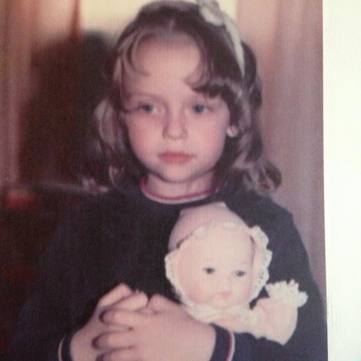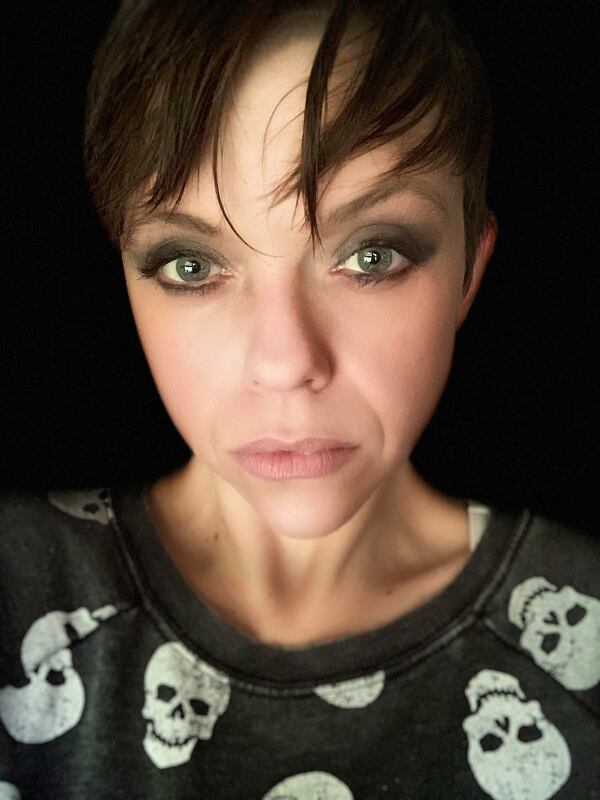|
It’s the things we spend our lives pushing into the periphery as far as we can push (as if we have no peripheral vision) that are ultimately the things we have to face head on to be truly free. Life doesn’t leave anyone without keys no matter how complicated the locks. Experience is the way we learn. It’s the impetus for change. It’s the marker on the tree that lets us know we’ve been on this path before, and asks us if we want to go there again. Bringing these experiences into focus, is the only way to transform them into the keys we need to unlock the parts of our truth that will allow us full and fulfilled expression that is uniquely our own. The Center on the Developing Child at Harvard University states in a report titled “The Foundations of Lifelong Health Are Built in Early Childhood”: “Experiences are built into our bodies and significant adversity early in life can produce biological “memories” that lead to lifelong impairments in both physical and mental health.” This truth we cannot change. We can, however, decide how these “biological memories” affect our lives. 1. The way we experience the present (and through our choices made in the present – the future), is directly influenced by imprints left in our brain by past events. A simple Google search on the topic of the developing brain will show you that much of the way we live our lives is written into our being by our early childhood experiences. We come into an understanding of the way the world works in that manner. Add too that the trials and triumphs of adolescence and the lessons of the earlier experiences are either amended or reinforced. Even before we were born, as shown by the field of epigenetics, our very DNA has been written with genetic predispositions for certain physical and mental behaviors based upon these same types of experiences had by our ancestors. Yes, the physical and emotional abuse your grandmother experienced before becoming pregnant with your mother could be the cause of your natural propensity toward anxiety as much as the constant bullying by your classmates in school makes you second guess your relevance in your career and creative pursuits. 2. These imprints create our body’s experience of homeostasis and what we don’t unpack, explore, and grow to understand will be destined to be relived as we attempt to create stability and balance in our lives. Imagine yourself an infant. You give your mother subtle cues that you’re hungry. You squirm, wrinkle your nose, and wave your arms, kicking your chubby legs. If your mother is close by, she instinctively notices these cues and offers you her breast or a bottle. But, if she’s busy in the other room, and the subtle cues go unnoticed, you resort to crying. In a situation of neglect, you may cry until you are physically wiped out and become quiet, yet still hungry. You grow despondent. Each time any of these scenarios play out, your baby brain takes note of the result of your efforts so that you can more effectively communicate your needs in the future. If the neglect situation continues, you will eventually stop providing any cues and become what the medical community blanketly terms “failure to thrive”. This type of trial and error learning is the basic blueprint of how our bodies over eons of time created in us survival mechanisms that allow us to adjust and adapt to some of the harshest situations. Whether we like it or not, these patterns become our body’s calibration of normal and we’ll seek out and attract experiences and situations that give us the sensations of normalcy. Yes, that emotionally abusive stepmother is still cutting you down with her words as you look for everyone you meet to manipulate your emotions for their gain, and you find those who will so you can react. It’s homeostasis rather than stepping out in a complete unknown territory. 3. Our past contains our earliest and most basic perception of the world. Are you a natural pessimist or an optimist? Our past experiences (and, yes, our genetic predisposition) set us up to believe that the world is either for or against us. Logically, we know that the entire collective world cannot be designed to work against us. Everyone has experiences that can be labeled both good and bad. Sometimes there’s a predominance of one type over the other, but every day we can experience things that can be placed under either of these labels. However, certain types of events experienced in our past create patterns of response in us that can lend themselves to certain behaviors that really mess with the way we experience the world. Adverse childhood experiences (ACEs) affect our brain development and directly impact both mental and physical health. This in turn influences our social-emotional wellbeing, creating an experience of life that feels almost adversarial. Common ACEs include: bullying, death of a loved one, accidents, chaotic home life, sexual abuse, poverty, illnesses, emotional/physical abuse, separation from a primary caregiver, parental incarceration, and more. Unfortunately, many of these experiences are not as rare as we’d like to think. Our ability to “look on the bright side” is hindered. 4. Our ability to define our own truth is correlated with our ability to transform our narrative of the past. When the Pharisees asked Jesus when they’d see the Kingdom of God, Jesus answered: “The Kingdom of God cometh not with observation: Neither shall they say, Lo here! Or, lo there! For behold, the Kingdom of God is within you.” So many depictions of heaven seem kind of cheesy to me. It’s because heaven is a very individualized state of being. You are Divine and that Higher Kingdom is one you must build for yourself. Only you know what’s best for you. First, you must become intimate with how and where it all went wrong. We cannot change the past. The past is not now. There is no need to fear it, or try to fix it. Sure, it might bring up some uncomfortable, even sickening vibes. How can we release the charge of those vibes without being willing to face them head on? What if you could rewrite your story? Not erasing painful things, but finding your personal truth among the memories? 5. A house is only as sturdy as it’s foundation. In working with the imbalances life has created and, honestly, will continue to create in our basic framework (housed energetically in our bodies in our lower triangle of chakras - focused energy centers in our subtle body: 1-2-3), we shore up our foundation. Our root chakra is associated with our feelings of belonging in a body and on this earth, sense of place, tribe, and/or family. The sacral chakra takes it a step further into interpersonal relationships with friends, kin, and lovers. It’s our beginnings of self-expression and creativity. Then, our solar plexus brings us to the “I”. We become individuals based on the support we found or did not find when coming into being through our first two chakras. Blocks and imbalances anywhere in the lower triangle comes into our manifestation of reality impacting our presentation and effectiveness in life and our spirituality/wellbeing. So, just as this filthy, dark past created our experience of the present, dealing with its creation in the now, acknowledging what it left within us, and rewriting the story of what we will allow it to manifest in our future are the keys to becoming free of it.
0 Comments
|
AuthorKelli Hansel Haywood is the mother of three daughters living in the mountains of southeastern Kentucky. She is a writer, weightlifter, yoga and movement instructor, chakra reader, and Reiki practitioner. Categories
All
Archives
September 2021
|



 RSS Feed
RSS Feed